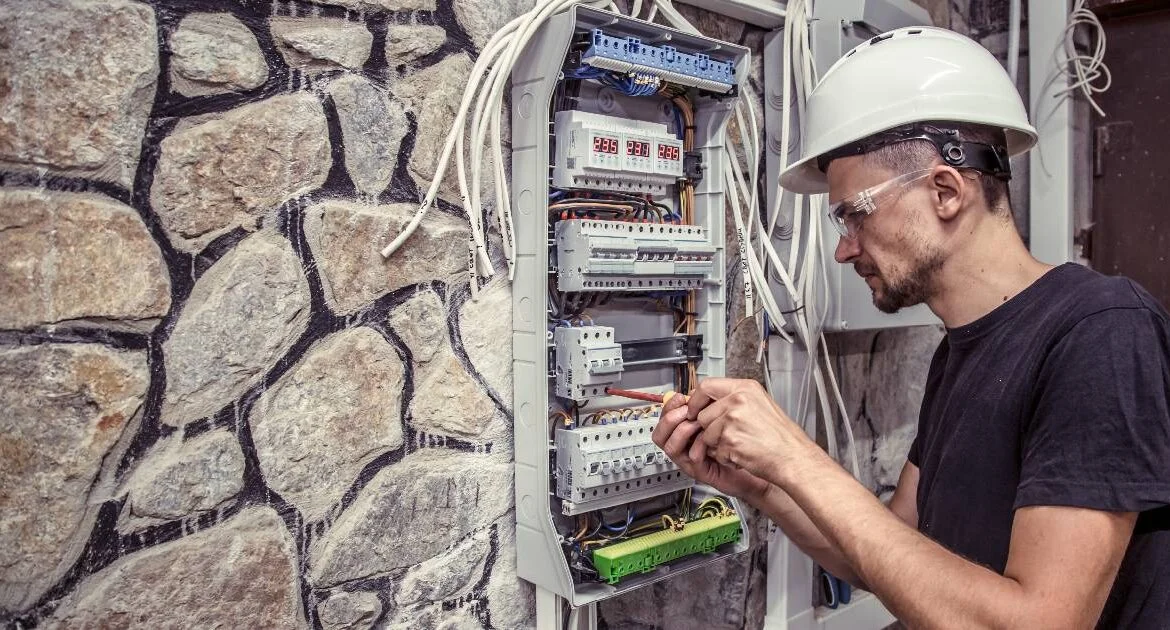Your home is your sanctuary, a place where you should always feel safe. However, many homeowners underestimate the potential risks associated with electrical installations. Electrical faults can lead to fires, electrocutions, and significant property damage. To ensure the safety of your household and property, it’s crucial to have your electrical installations inspected regularly, and this is where an EICR certificate becomes invaluable. In this blog, we will explore the importance of EICR certificate in ensuring electrical safety in your home.
EICR Certificate
Certified EICR service for up to 15 circuits. Our accredited engineers provide fault finding, diagnostics, and we can do a PAT in the same visit. Legally it’s required every 5 years.
What is an EICR Certificate?
An EICR Certificate stands for “Electrical Installation Condition Report.” It is a document that verifies the electrical safety and integrity of your property. An EICR is typically carried out by a qualified electrician and assesses the condition of the electrical installations in your home.
Why is an EICR Certificate important?
EICR certificate are vital for several reasons:
- Safety: They ensure that your electrical systems meet safety standards, reducing the risk of electrical accidents, fires, and shocks.
- Compliance: In many countries, EICR certificate are legally required to maintain insurance coverage or when selling or renting a property.
- Peace of Mind: They give you confidence that your electrical installations are safe and won’t cause unexpected problems.
How often should I get an EICR Certificate for my home?
The frequency of EICR inspections varies by location and the type of property. In the UK, for instance, it’s generally recommended every 5-10 years, but you should consult a local electrician or regulations specific to your area for precise guidance.
What does the EICR inspection process involve?
During an EICR inspection, a qualified electrician will:
Examine the consumer unit (fuse box) and associated wiring.
Check the condition of sockets, switches, light fittings, and other electrical components.
Look for any signs of wear, damage, or overheating.
Identify any non-compliance with current electrical regulations.
What happens if the EICR inspection reveals issues?
If the inspection uncovers problems, the electrician will classify them as either “C1” (dangerous and requiring immediate attention), “C2” (potentially dangerous and needing improvement), or “C3” (non-compliant, but not unsafe). They will provide recommendations for repairs, and it’s essential to address these issues promptly.
Can I do an EICR inspection myself?
EICR inspections should only be carried out by a qualified electrician or electrical contractor. DIY assessments are not recommended due to the potential risks involved.
Are EICR certificate required when selling a property?
In many regions, including the UK, EICR certificate are mandatory when selling a property. They provide assurance to the buyer and demonstrate compliance with safety standards. It’s a critical part of the conveyancing process.
Can I rent out my property without an EICR certificate?
In the UK, landlords are required by law to obtain an EICR certificate for their rental properties. This ensures the safety of tenants and helps landlords meet their legal obligations.
What if my property fails the EICR inspection?
If your property fails the inspection, it’s essential to address the issues promptly. This may involve rewiring, repairing faulty installations, or replacing outdated components. Once the necessary work is completed, a follow-up inspection will be conducted to issue a satisfactory EICR certificate.
How can I find a qualified electrician for an EICR inspection?
To find a qualified electrician for your EICR inspection, you can:
Ask for recommendations from friends and family.
Check online directories or government-certified electrician listings.
Ensure the electrician is registered with a recognized professional body or organization in your region.
Remember, maintaining electrical safety in your home is a crucial responsibility. EICR certificate are a valuable tool to achieve this and to ensure the well-being of your family and the integrity of your property. Always consult local regulations and professionals for guidance tailored to your specific situation.



